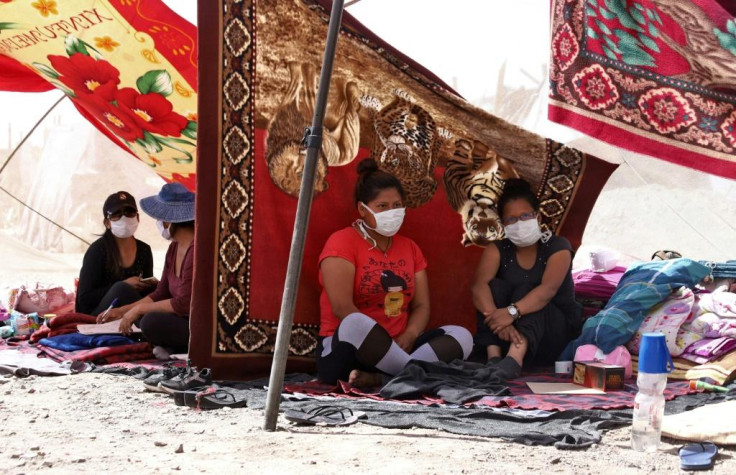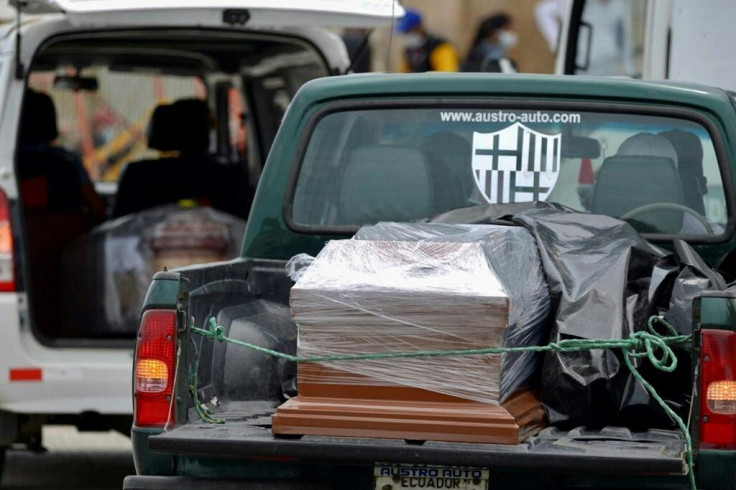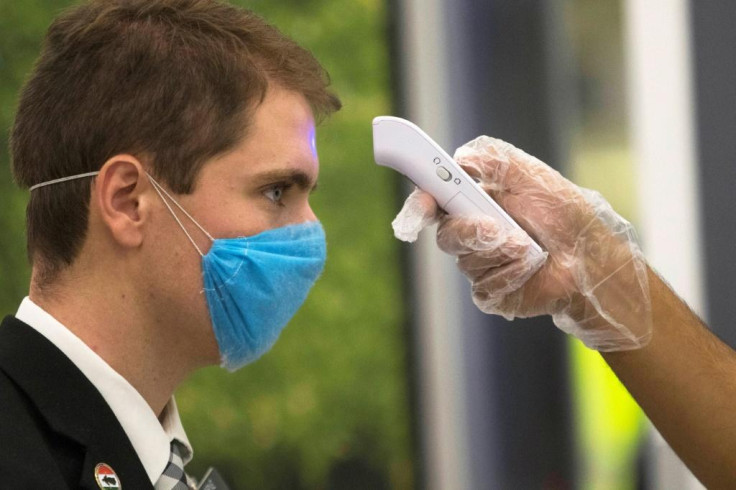Coronavirus spreads in Latin America as cases pass 20,000
Authorities had registered 537 deaths and 20,081 cases across Latin America by Wednesday afternoon.
More than 20,000 cases of COVID-19 were registered in Latin America and the Caribbean by Wednesday -- double the figure from five days ago, according to an AFP tally.
As infections spread across the region, a Guatemalan migrant died and more than 20 were wounded in a riot over coronavirus fears at a holding facility for Central American migrants in Mexico, officials said.
A protest by mostly Honduran migrants at the facility in southeastern Tabasco state turned violent late Tuesday after those inside set bedding ablaze.

Authorities had registered 537 deaths and 20,081 cases across Latin America by Wednesday afternoon.
Ecuador said Wednesday the bodies of 150 people were retrieved from homes in the port city of Guayaquil after the coronavirus crisis put a strain on resources.
A joint military and police task force created to deal with the emergency removed the bodies in the past three days, government spokesman Jorge Wated said.
Authorities have not confirmed how many COVID-19 victims were among the 150 dead.

Brazil recorded Latin America's first infection on February 26. With a population of 210 million, the South American giant is now the most affected country with 5,717 cases, including 201 deaths.
President Jair Bolsonaro -- who has repeatedly railed against social distancing measures he says are needlessly hurting the economy -- found himself at the center of a row over spreading misinformation.
Bolsonaro posed a video online of a market supposedly hit by shortages caused by the pandemic, but he was forced to remove it hours later after journalists found it well stocked.
Bolsonaro has compared the coronavirus to a "little flu," and condemned the reaction to it as "hysteria," statements which have left him increasingly isolated, in Brazil and beyond.

Another leader criticized for taking the pandemic lightly, President Daniel Ortega of Nicaragua, replaced his health minister.
Nicaragua's government has yet to enforce preventive measures common in other countries, including closing borders or prohibiting crowds.
It has reported five infections, with one death.
The minister, Carolina Davila, will remain as an advisor to the presidency however, the government said.
More than 300 Bolivians and dozens of Peruvians were stranded at a makeshift camp at Huara in Chile on Wednesday, after their countries' borders were shut due to the coronavirus.
Chile's Interior Minister Gonzalo Blumel pleaded for understanding, saying "all countries have to face this from a humanitarian perspective, especially with regard to the return of people who are in a position to return."
The pandemic has compounded an already desperate situation facing millions of refugees and migrants who fled Venezuela's economic collapse, said Eduardo Stein, the UN special representative for Venezuelan migrants and refugees.
The UN refugee agency and the International Organization of Migration jointly called on the international community to boost aid for millions of Venezuelan migrants threatened by the economic fallout of the coronavirus pandemic.
Nearly five million people have left since 2015, most ending up in Colombia and other neighboring South American countries, overwhelming healthcare systems.
Mexico adjusted its economic forecast for 2020 on Wednesday due to the negative effects of the epidemic, in line with other pessimistic estimates by analysts.
The finance ministry said in a statement that the performance of the economy will be in a range of between minus 3.9 and 0.1 percent, well down from its previous estimate of growth, ranging between 1.5 and 2.5 percent.
Copyright AFP. All rights reserved.
This article is copyrighted by International Business Times, the business news leader





















